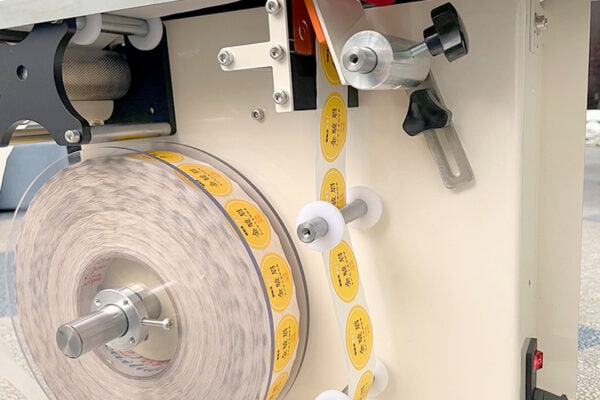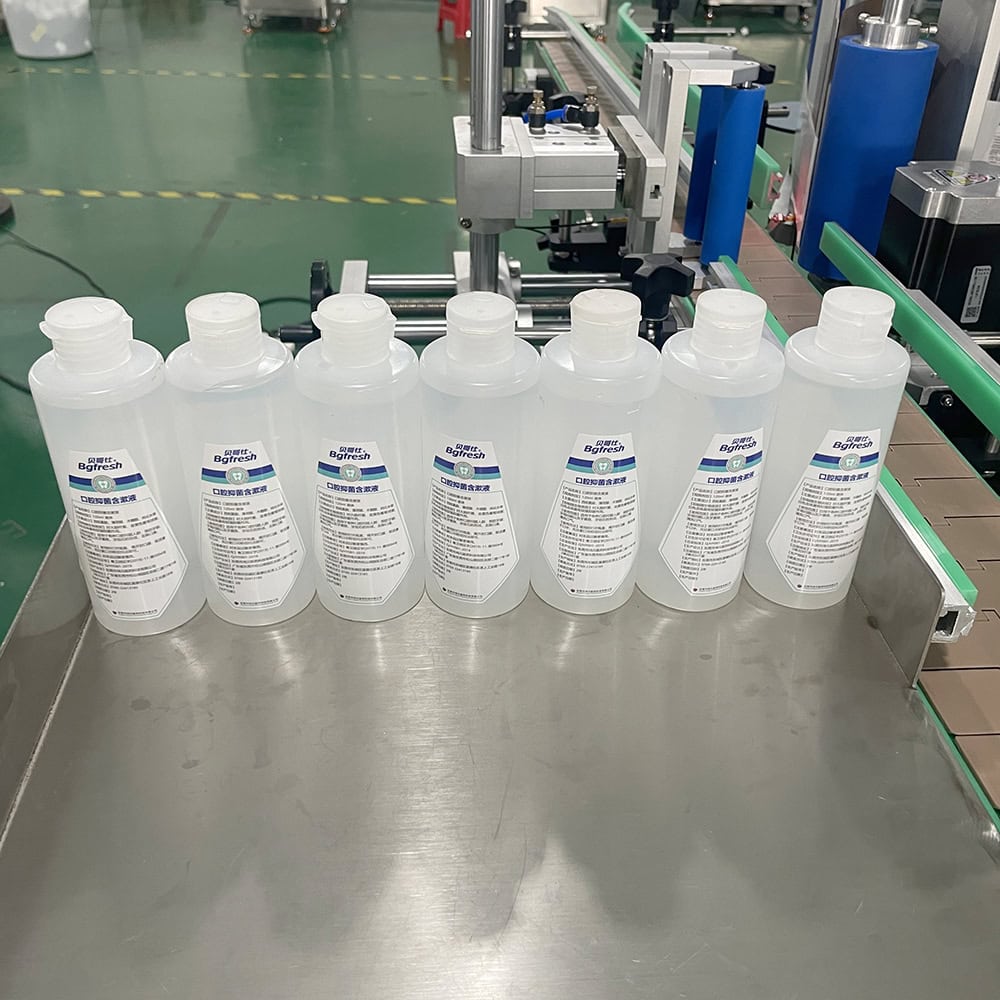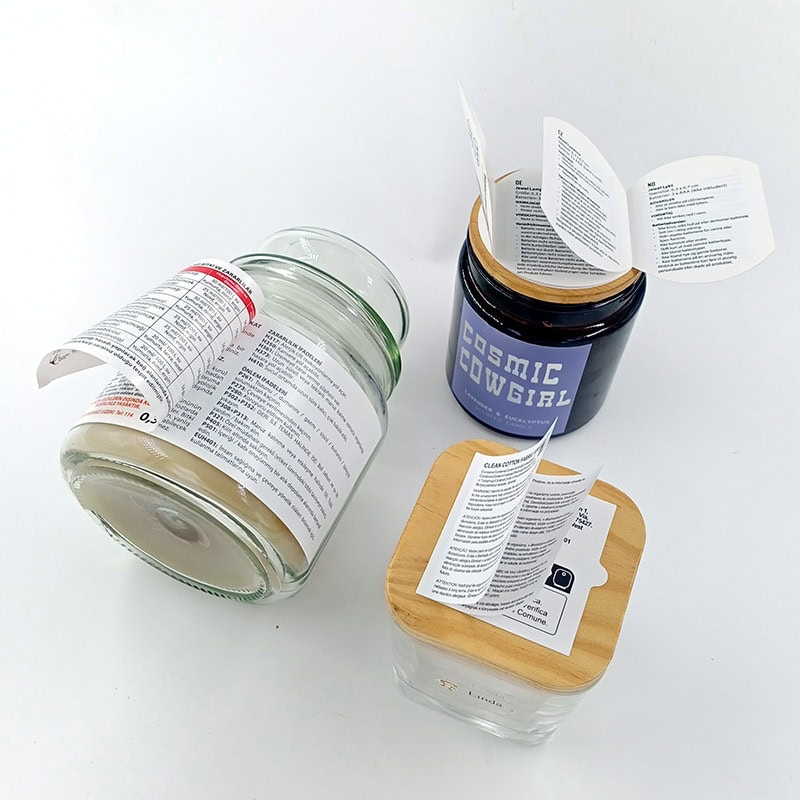Industrial products often face harsh conditions that regular labels can’t endure. Standard labels fade, tear, or fall off, leading to damaged products, regulatory issues, and inefficiencies. Durable industrial labels are designed to withstand these tough environments, offering superior performance and longevity.
Durable industrial labels differ from standard labels in their construction and ability to resist harsh conditions. Made from robust synthetic materials, they offer increased durability against abrasions, UV rays, chemicals, and extreme temperatures, making them ideal for industrial applications.
To understand why durable industrial labels are essential in tough environments, let’s delve into their key differences in materials, adhesives, testing, and real-world applications.

Material Composition
Durable industrial labels are crafted from high-strength synthetic materials such as vinyl, polyester, and BOPP (biaxially oriented polypropylene). These materials are far more resilient than paper-based labels, making them resistant to tears, scratches, and fading. For industries like beverage manufacturing and logistics, where products are exposed to moisture and rough handling, these materials ensure long-lasting label integrity. Unlike paper labels, these materials stand up to extreme temperatures, harsh chemicals, and UV exposure.
Adhesive Properties
The adhesive used in durable industrial labels is engineered for stronger bonding compared to standard paper labels. While regular labels may peel off under moisture or chemical exposure, industrial labels adhere firmly even in challenging environments. Whether it’s a bottle labeling machine, a capping machine, or an industrial shrink wrap process, these labels maintain their position, ensuring they do not detach or fade, preserving the product’s critical information.
Durability Testing
Industrial labels undergo extensive durability testing to ensure they perform in demanding environments. These tests evaluate resistance to abrasions, exposure to harsh chemicals, and extreme weather conditions. Unlike standard labels, which might degrade after a short period, industrial labels retain their functionality under prolonged stress, reducing the need for frequent replacements. This testing is vital for industries where labeling errors can result in costly mistakes, such as the food or pharmaceutical industries.
Resistance to Environmental Factors
One of the defining features of durable industrial labels is their ability to withstand environmental factors such as UV radiation, high moisture levels, and exposure to oils and chemicals. These labels are designed to endure outdoor conditions, which is critical for products exposed to sunlight, rain, or chemicals. For example, labels on bottles in a vacuum packaging machine or a bottle unscrambler will remain legible and intact, ensuring that product information is visible throughout the product’s lifecycle.

Application in Harsh Environments
Durable industrial labels excel in environments where standard labels fail. For instance, in manufacturing plants where products undergo rigorous handling, such as those using packaging machines or liquid filling machines, these labels will withstand rough conditions. They are especially beneficial in environments exposed to high temperatures, moisture, or exposure to chemicals. Whether it’s a corner wrap labeling machine or an automatic liquid packaging machine, durable labels ensure consistent performance without losing legibility.
Enhanced Print Quality
Industrial labels maintain high print quality under extreme conditions. Standard labels often suffer from smudging or fading due to abrasion or moisture, but durable labels, whether used with a label printer or industrial label printer, ensure that barcodes, QR codes, and product information remain clear and scannable. This is critical in settings where accurate identification is necessary, such as warehouse management or logistics, where automated systems track products using barcode scanners.
Compliance with Industry Standards
In industries where safety and regulatory compliance are crucial, durable industrial labels are designed to meet specific standards. For example, labels in the food and beverage industry must comply with FDA regulations, while labels in the chemical industry must meet GHS standards. Durable labels ensure that all required information, such as hazard warnings or product contents, remains intact and legible, even in adverse conditions. By using the right industrial labeling machine, companies can ensure they meet regulatory requirements without the risk of label degradation.

Cost Considerations
While durable industrial labels come at a higher initial cost than standard paper labels, they provide long-term cost savings by reducing the need for frequent label replacements. In high-volume industries like beverage bottling or powder packaging, the cost of replacing damaged labels can quickly add up. Durable labels, however, ensure that products remain clearly identified without the need for re-labeling, saving both time and money in the long run.
Versatility Across Applications
Durable industrial labels are incredibly versatile, catering to a wide range of industries and applications. Whether it’s labeling products in a bottle labeling machine, ensuring the integrity of labels during shrink wrap machine processes, or tracking goods in a warehouse using barcode labels, these labels offer consistent performance. Their ability to conform to various shapes and surfaces makes them ideal for diverse labeling needs across packaging lines and production plants.
Customization Options
Durable industrial labels also offer excellent customization options. These labels can be tailored in terms of size, design, and material, ensuring that businesses can meet their specific branding or functional requirements. Whether you’re looking for custom labels for a liquid filling machine or a flag labeling machine, these options allow for flexibility in application while maintaining durability.
Conclusion
Durable industrial labels are far superior to standard labels in terms of strength, resistance, and longevity. These labels ensure product identification and regulatory compliance in even the harshest environments, making them an indispensable part of industrial operations. By investing in durable labeling solutions, businesses can avoid frequent replacements and ensure their products are clearly marked throughout their lifecycle.









